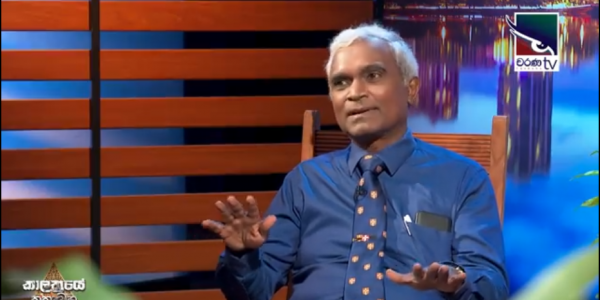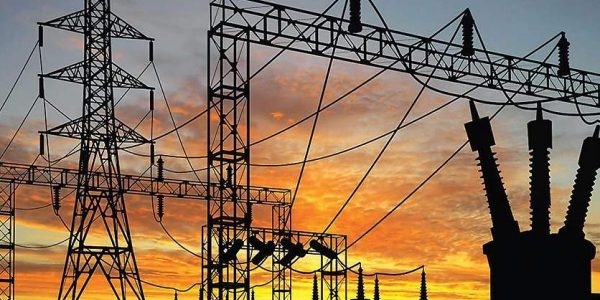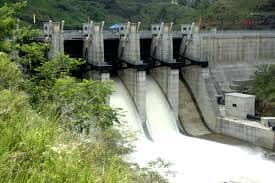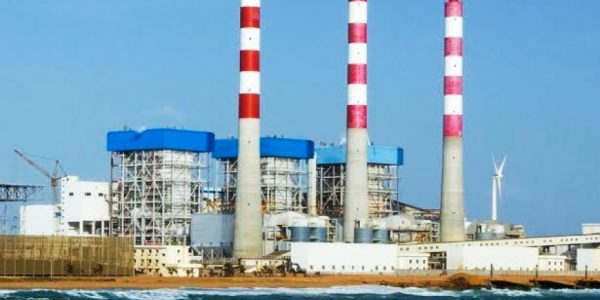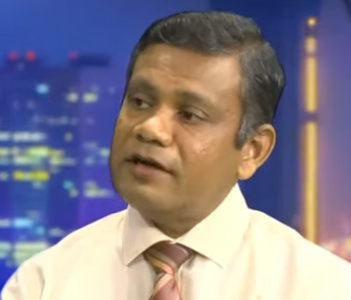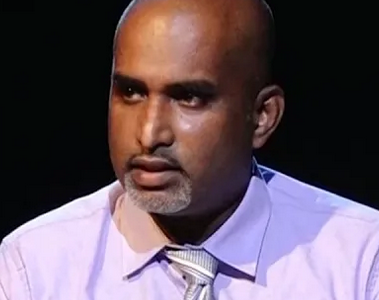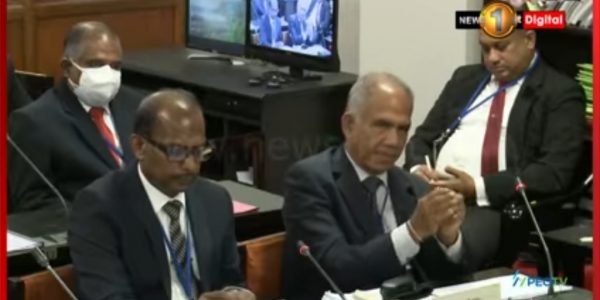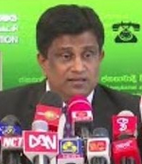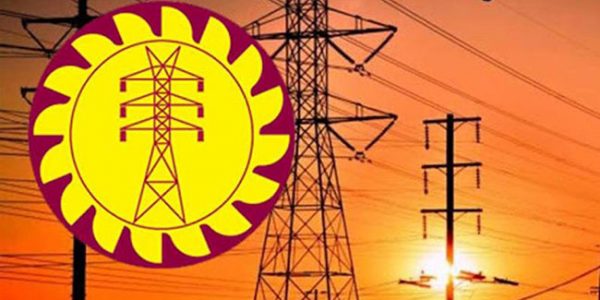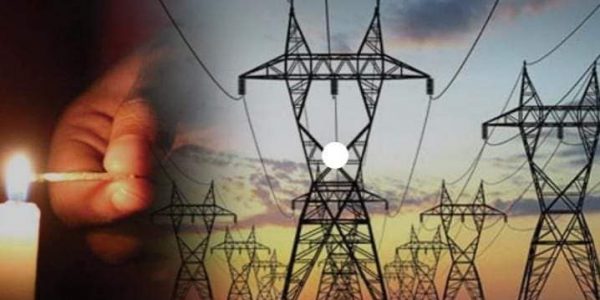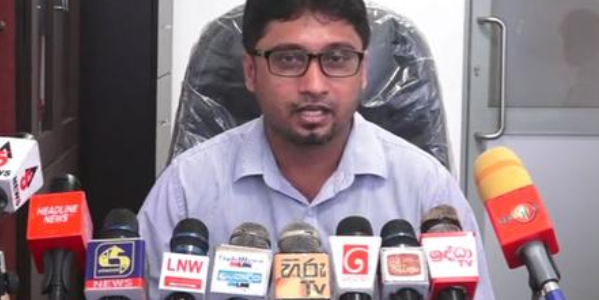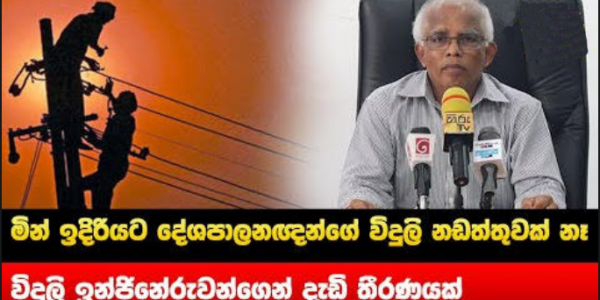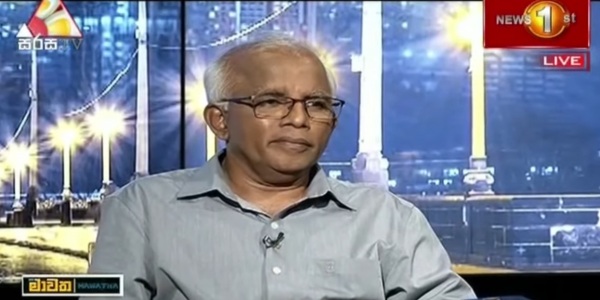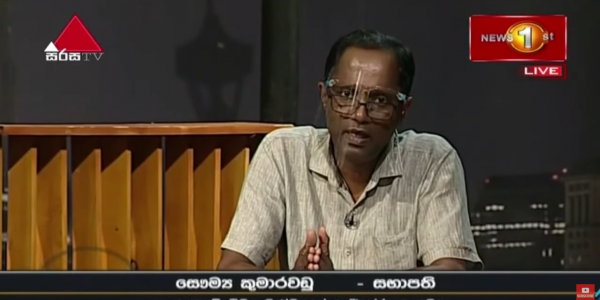The Ceylon Electricity Board Engineers’ Union (CEBEU) is a Trade Union Registered under the Trade Union Ordinance, bearing the Registration number 770. Any Engineer working in the CEB, irrespective of the discipline, is eligible to be a member of the CEBEU. With a proud history of over 4 decades of existence, CEBEU today is a force to be reckoned with having over 850 engineers in its ranks.
Disscussion
Recent News
මිනිස්සු දුක් විඳින්නේ දේශපාලඥයින්ගේ තීරණ නිසා කියලා ඔවුන් දන්නේ නෑ…
???? ????????, ?????????, ??? ?????? ?? ??????? ?????? ???? ????? ??????? ???? ???? ???? ???? ??????… ???? ??? ??????? ??????? ?? ...
Read Moreඅසාධාරණ බදු පනතට එරෙහිව ලංවිම ප්රධාන කාර්යාලය සහ ඌව පළාත වෘත්තිකයින් හා සේවා නියුක්තිකයින් පෙත්සම් අත්සන් කිරීම – 2023 ජනවාරි 03 දින
??????? ?? ?????????? ???????? ?????? ??? ?????? ?? ???? ????? ???? ?????? ???????? ?? ?????? ???????????? ??? ?????? ??????? ?? ??? ...
Read Moreරටටත්, ජනතාවටත් අත්යාවශ්ය විදුලි ව්යාපෘති ප්රමාද කරවන්නේ කාගේ උවමනාවටද…?
??? ??? ????? ?????? ?????????? ??????????? ???????? ??? 43 (43 GWh) ????? ?????? ??? ?????? 43 ?? ??? ?????. ??? ?????? ...
Read Moreහදිසි විදුලි මිලදී ගැනීම්
??? ???? ???????? ????? ????, ??? ???? ?????? ?????????, ?????? ?? ???????? ??????????? ?? ???? ??? ???????? ??? ??? ?? ?? ...
Read Moreවර්තමාන විදුලිබල ජනන අර්බුදයේ පැතිකඩක්…
?????????? ??????? ???????? ???? ??? ???????????? (Unit 02) A ?????? ???????????? ??? ??????? ??? ???? ???? ??? ?? ???????? ?? ?? ...
Read More2022/2023 නව ගල් අඟුරු ගොඩබෑමේ වාරයේ ප්රථම නැව පැමිණේ…!!!
2022/23 ??? ????? ??????? ????? ?????? ??? ?????????? 25 ?? ??? ??????? ??????? ???? ??? ???????? ?? ???. ?????? ??? ????? ...
Read MoreEng. Nihal Weerarathne – The new President of CEBEU for the term 2022/2023
Eng. Nihal Weerarathne was elected as the President of CEBEU for the term 2022/2023 in the Annual General Meeting held at ...
Read Moreඇත්තටම විදුලි බිල වැඩි වෙයිද?
???? ????????? ???????? ?????????? ????? ??????? ???? ??? ?????? ?????? ???????? ????????? ?? ????? ?????? ?? ???? ??? ??????? ??? ????????… ...
Read Moreනිකන් ලැබෙන හිරු එළියෙන් විදුලිය නිපදවන එක, කෙතරම් නම් ලාභද…?
?? ????? ???????? ??? ??? ????????? ???? ?????????? ?????? ?????????. ? ???????? ??????, ?????? ????? ????? ???? ??????? ??????? ??????? ??? ...
Read More”ජනපති මට කිව්වා නරේන්ද්ර මෝදි බල කරනවා, ඒක නිසා අදානිට දෙන්න කියලා” – ලංවිම සභාපති
???????? ??????? ??????? ??????… https://fb.watch/dBpy6k1gTp/
Read Moreජනාධිපති සහ අගමැති ට ඉහලින් ඉන්න ප්රබල ඇමති කවුද…? – නිමල් පියතිස්ස – පා.ම. ශ්රී ලංකා පොදුජන පෙරමුණ.
????? ???? ?? ?????? ????????????? ??? ?????????
Read MoreCancelling Competitive bidding will not expedite the process but will lead to corruption
Dr. Asanga Rodrigo – Former Director General of SLSEA. Here is a reply to the Minister of Power & Energy Kanchana ...
Read Moreරට අසරණ වුනු වෙලේ අදානි සමාගමට රට පාවා දෙන්නයි යන්නේ…
????? ??.?. ?? ???????? ??????? ????? ??. ??????
Read MoreCEBEU sees ominous side of proposed changes to Electricity Act
By Ifham Nizam The Ceylon Electricity Board Engineers’ Union (CEBEU) yesterday expressed concern about the Bill gazetted on April 29, 2022, ...
Read Moreඅදානි ව්යාපෘතිය නීති විරෝධියි…!!!
???????? 500? ???? ?? ???????????? ???? ????????? ????? ????? ??? ?????? ?? ??? ??????? ??????? ???? ?????? ?????? ??? ???? ?? ...
Read Moreආර්ථිකේ, කොරෝනා, කාබනිකේ සහ විදුලිය…
?????? ???? ?????? ??? ???? ???… ????? ???????? ???? ?????? ????? ???…? ????????? ??… ?? ??? ????????? ???? ???? ?? ?? ...
Read Moreවත්මන් අර්බුදය හමුවේ විදුලි බල ක්ෂේත්රය…
“?????? ??????? ??????????? ?? ?????? ??????? ?????? ?? ?????????? ???????? ??????” ????????? ????? ??????? ??????????? ?? ????? ?????? ??????? ???????? ????????? ...
Read Moreඇඳිරි නීතිය ඉවත් කළ පසු…
????? ????? ???? ?? ???, ?????? ?????? ?????? ??? ??? ??????? (7 1/2) ?????? ?????????? ???? ?????? ?????? ?? ????? ?????? ...
Read Moreමින් ඉදිරියට දේශපාලඥයින්ගේ විදුලි බිඳවැටුම් නඩත්තුවක් නෑ…
?????? ??????????????? ???? ?????????… ??? ?????????? ??????? ???? ?????? ?????? ???? ?? ??? ???????? ?????????? ????? ???? ??????… ?????? ????????? ????? ...
Read Moreලංවිම ඉංජිනේරු සංගමයේ ප්රවෘත්ති නිවේදනය
???????? ??????????? ??????? ?????????? ??? ???? ?? ???????? ???????? ????? ???????? ????? ??? ??? ???? ??? ???? ?????. ???????? ????????? ???? ...
Read Moreඔබේ වහලයටත් සූර්ය බල පද්ධතියක් සවි කරගන්න කලින් දැනුවත් වෙන්න…!!!
“??? ?????? ????? ?? ????????? ??? ????????? ?? ?????? ???????? ???????? ????????” ?? ???? ?????? ??? ??????? ????? ?? ?????? ??? ...
Read Moreක්රමයේ වෙනසක් (System Change)
????? ???????? ?????? ?????? ?????? ???????? ????? ?????? ???? ?????? ?? ???? ???? ????? ??????? ??????? ??????….
Read Moreවිදුලි අවුල තවත් වසර හතරක්. 2026 දක්වාම යයි…!!!
????????? ???????? ?????? ??????? 2026 ??? ??? ?? ???? ?????? ????? ?????? ???????? ?????? ????? ?????? ?????? ???????? ???? ??????? ????. ...
Read Morenews – අකුරට වැඩ නිසා පැය 8 න් පසු හදිසි විදුලිය බිඳ වැටීම් සේවාවලින් ඉවත් වේ – ලංකා විදුලිබල මණ්ඩලයේ විදුලි ඉංජිනේරු සංගමය
????? ??? ?????? ??????? ????????????? ???? ??? 8 ? ???? ??????? ????????? ????? ??????? ??? ?????? ????????? ? ???? ?? ?? ...
Read MoreMAWBIMA ”පැය 8න් පසු විදුලිය බිඳ වැටුණොත් සේවය සපයන්නේ නැහැ” – ලංවිම ඉන්ජිනේරුවරු
???? ???????? ??????? ????????? ????? ????? ?? ????? ??? ?????? ????????????? ?????? ?? ???? ?????? ??? 8? ???? ??????? ?????? ?????? ...
Read MoreDIVAINA- විදුලි සටන තීන්දුයි: යුගදනවි පැවරීමේ ගිවිසුම අහෝසි කරන්න – ලංවිම ඉංජිනේරුවො අකුරට වැඩ
ලංවිම ඉංජිනේරුවො අකුරට වැඩ
Read Moreබලශක්ති සුරක්ෂිතතාවය සහ ජාතික සම්පත්
“???? ???????? ???????? ???? ?????? ?????????? ?? ??? ??????????? ?? ????? ?????? ?? ???? ?????? ???????????? ??? ?? ???? ???? ??? ...
Read More𝐂𝐄𝐁 𝐄𝐧𝐠𝐢𝐧𝐞𝐞𝐫𝐬 𝐟𝐞𝐚𝐫 𝐭𝐡𝐞 𝐰𝐨𝐫𝐬𝐭 𝐢𝐟 𝐆𝐨𝐯𝐭. 𝐦𝐨𝐯𝐞𝐬 𝐚𝐡𝐞𝐚𝐝 𝐰𝐢𝐭𝐡 𝐍𝐞𝐰 𝐅𝐨𝐫𝐭𝐫𝐞𝐬𝐬 𝐝𝐞𝐚𝐥
– ??? ?? ??? ?? ???? ?? ????? ??$ ????? ???? ? ????? ?? ??? ???? ???? ????? – ???? ??? ...
Read MoreNew Fortress Energy (NFE) Unsolicited Proposal; Threat to Energy Security and Enormous Loss to the Country
National Energy Policy The Sri Lanka government has gazetted the National Energy Policy and Strategies of Sri Lanka in August 2019. ...
Read Moreරටේ බලශක්ති ආරක්ෂාවට තර්ජිත, New Fortress Energy (NFE) සමාගම ගෙනෙන Unsolicited ආකාරයේ යෝජනා රටට විශාල පාඩුවක්
????? ??????? ???????????? ??????, ?????????? ??? ?? ??????????; ??????? ????????????? ????? ????? ???? ??? ???????? ?????? ?????? ???? ??????, ????? ???????? ...
Read MoreLNG ගනුදෙනුව වහා අත් හිටුවන්න…!!!
???????? ?????? ????????? ???????? 40 % ??? ????? ?????? – ????? ???????? ????? ?? ?????? News1st ????? ??????? ??????? ??????. (https://youtu.be/UPvmtQ34oAQ?t=829) ...
Read MoreSri Lanka could lose Billions through unsolicited New-Fortress Energy Deal
Sri Lanka stands to lose hundreds of millions of dollars through a back-door liquefied natural gas (LNG) deal with a US ...
Read MoreSustainable Pathway to Sustainable Power
AN INTERVIEW WITH ENG. LAKSHITHA WEERASINGHE AUGUST 2021 |SLEN PODCAST In the tenth episode of the SLEN Podcast, Eng. Suran Fernando ...
Read Moreපුනර්ජනනීය ඉලක්ක සහ විදුලි මාෆියාව
මෙ.වො.4000 සූර්ය විදුලිය ලබාගන්න අවුරුදු කීපයක් ඇතුලත මේ සියළු දේ කරන්න ඩොලර් බිලියන 4 - 5 ක් (රුපියල් බිලියන 1,000 ක් පමණ) පිටරටට යවන්න වෙනව. ඒ වියදම දරන්න වෙන්නෙ රජයට. මෙ.වො. 4000 සුර්ය බලාගාර ලංකාවේ පුද්ගලික අංශයෙන් කලොත් මේ කෙටි කාලය ඇතුලත ඩොලර් බිලියන 2.5 - 3.0 ක වගේ විශාල විදේශ විනිමය ප්රමාණයක් අවශ්ය වෙනවා. විදේශ සංචිත නැතිව අත්යවශ්ය ආනයන පවා නතර කරලා තියෙන මේ මොහොතේ මේ වියදම රටට දරන්න පුළුවන්ද ?
Read MoreEng. Anil Ranjith – The new President of CEBEU for the term 2021/2022
The Annual General Meeting of CEBEU for the term 2021/2022 was held on the 8th of February 2022 at Grand Ballroom ...
Read More




